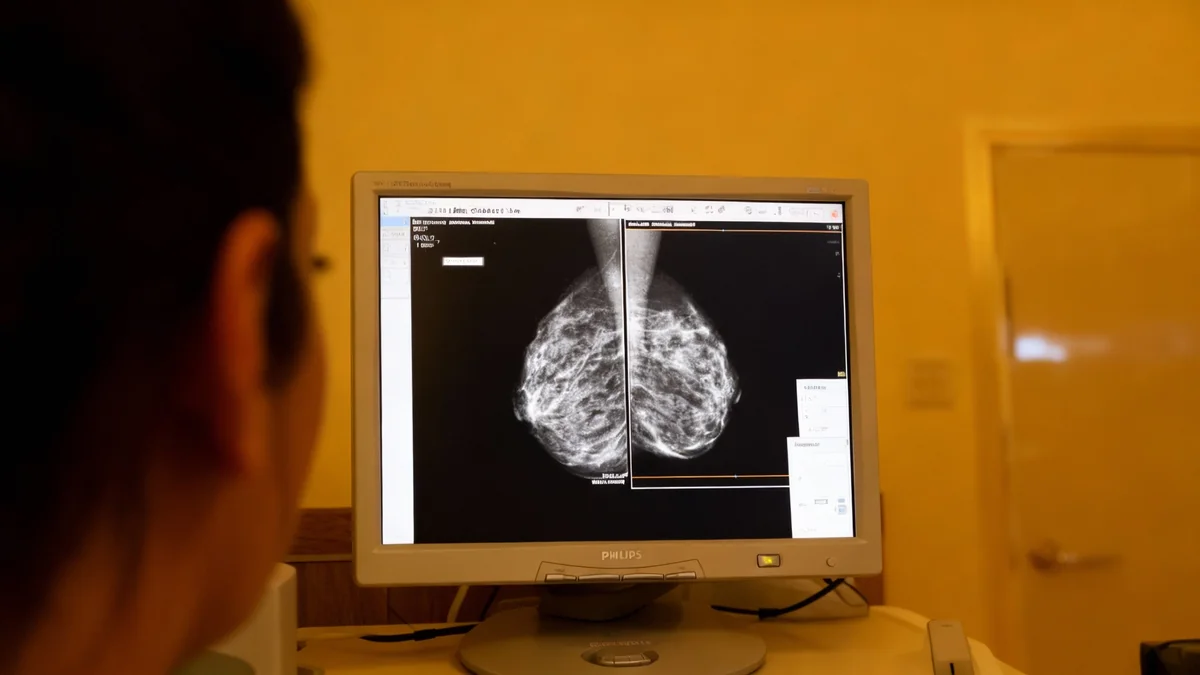Researchers have developed a personal health large language model (LLM) by fine-tuning Google's Gemini AI with real-world Fitbit data. This new model demonstrates improved performance in sleep and fitness coaching, according to a study published in the journal Nature Medicine.
The project aimed to create an AI capable of providing personalized health advice based on individual user data from wearable devices. By training the model on specific coaching scenarios and self-reported outcomes, the team established a new benchmark for AI-driven health and wellness applications.
Key Takeaways
- Researchers created a personal health AI by fine-tuning Google's Gemini model.
- The AI was trained using real-world Fitbit data on sleep and fitness.
- The model's performance in health coaching tasks improved significantly after training.
- This research establishes a new benchmark for developing personalized AI health coaches.
A New Model for Personalized Health
A new research paper published in Nature Medicine details the creation of a specialized artificial intelligence designed for personal health coaching. The model, referred to as a personal health large language model (PH-LLM), is built upon Google's powerful Gemini family of AI models.
The core innovation lies in its training process. Instead of relying solely on general information, researchers fine-tuned the AI using specific, real-world data collected from Fitbit wearable devices. This approach allows the AI to move beyond generic advice and offer guidance that is more relevant to an individual's daily life and habits.
The study, led by Justin Khasentino, Anastasiya Belyaeva, and Cory Y. McLean, addresses a key challenge in digital health: how to make AI coaching effective and trustworthy. By grounding the AI's responses in actual user data, the team aimed to create a more practical and helpful tool for consumers.
Background on Wearable Data and Health
The use of data from wearable devices like Fitbit has become increasingly important in health research. A 2024 study in Nature Medicine by Zheng et al. demonstrated that sleep patterns captured by these devices are associated with the incidence of chronic diseases, highlighting the value of long-term, real-world health monitoring.
Leveraging Fitbit Data for AI Training
To assess and improve the AI's capabilities, the research team created three distinct benchmark datasets. These datasets were carefully curated to cover a range of tasks relevant to sleep and fitness coaching. The tasks included everything from answering expert-level questions about health to navigating complex, real-world coaching scenarios.
The data used for fine-tuning the Gemini model included daily sensor readings from Fitbit devices paired with self-reported outcomes on sleep quality. This combination of objective data (sensor readings) and subjective feedback (user reports) is crucial for training an AI that understands the nuances of personal well-being.
According to the research, this process allowed the model to learn the connections between specific activities, sleep patterns, and how a person actually feels. This is a significant step beyond simply analyzing raw numbers.
Dataset Origins
The patient-reported outcomes dataset used in the study was detailed in the Google Health digital well-being study protocol, published in 2024. This provided a structured foundation for pairing sensor data with personal feedback.
Measuring Performance and Setting Benchmarks
After the fine-tuning process, the personal health LLM showed a marked improvement in its performance. When tested against the benchmark datasets, the specialized model was more accurate and relevant in its coaching responses compared to the general-purpose Gemini model.
The researchers evaluated the AI's ability to provide supportive and actionable advice. The goal was not just to present data back to the user but to interpret it in a helpful way, much like a human health coach would.
The study provides a new benchmark for the future development of AI health coaches. By demonstrating a clear methodology for improvement, it paves the way for more sophisticated and reliable digital health tools.
This success in improving performance through targeted, real-world data training is a key finding of the paper. It suggests that the future of effective AI coaching depends on specialization and the use of high-quality, individual-specific data.
Implications for the Future of Digital Health
The development of this personal health LLM has significant implications for the future of consumer health technology. As wearable devices become more common, the potential for AI to help people make sense of their health data is enormous.
This research highlights several key points for the industry:
- Personalization is Key: Generic AI models are less effective for health coaching than models fine-tuned on specific, personal data.
- Data Quality Matters: Combining sensor data with self-reported outcomes provides a richer source for AI training.
- Benchmarks are Essential: Establishing clear performance metrics is necessary to evaluate and improve AI health tools responsibly.
While this study represents a significant step forward, the authors note it is a foundational benchmark. Further research will be needed to refine these models, ensure their safety and reliability, and explore their application across a wider range of health and wellness domains.
The project aligns with a broader trend in medical AI, where models are increasingly being trained on high-dimensional raw data to predict health outcomes more accurately than traditional methods that rely on a smaller set of pre-selected features.





